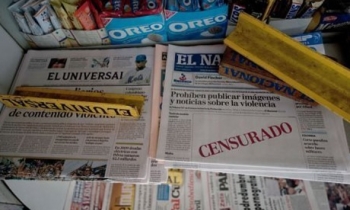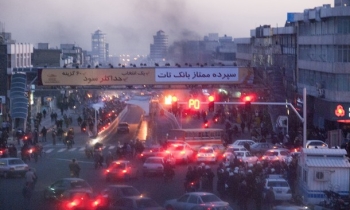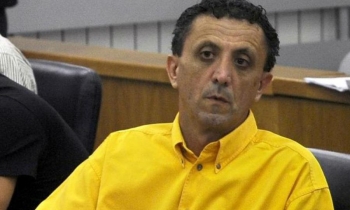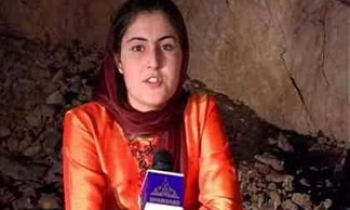It prides itself on being France's mouthpiece of the free-thinking left, an irreverent daily founded in the wake of the 1968 student revolt by Maoist luminaries and Jean-Paul Sartre.
But the French newspaper Libération plunged into its own existential crisis yesterday after the editor was asked to leave, and the paper which once boasted that it cared nothing about money found its future on the line in a row over funds.
Serge July, 63, a Sorbonne-educated, one-time Maoist revolutionary and veteran of France's 1968 student rebellion, called journalists together at 10am after the paper's daily news conference. The editor, who older colleagues call "the father", announced that he had been asked to leave by the newspaper's major shareholder, Edouard de Rothschild, who would not pump any more money into the ailing title while July still held the reins.
Journalists on the paper known simply as Libé described it as the end of an era and said the future of the title needed to be secured in a slumping print market.
July told his staff that "if my departure can lead to the paper receiving more financing ... I will not stand in the way". His announcement comes after months of financial strife at France's leading leftwing daily, which never exceeded a circulation of 200,000 readers but which has been losing readers faster than other French papers. Last year, more than 50 staff took redundancy as the paper lost more than €500,000 (£342,000) a month.
Libé was launched by radicals in 1973 and claimed to be "voice of the people", breaking with the bourgeoisie and running irreverent headlines. When the film star Jean Gabin died in 1978, it carried the headline: "Gabin is dead, [President] Giscard is in the shit, the Beaujolais is good, France carries on."
A founding manifesto of Libération was to "depend on the people, not on advertisers or banks. It became the voice of its generation, but as that aged, so did its readership. Libé was accused by media analysts of failing to attract readers beyond its core market aged between 45 and 55, middle class, liberal and, for a nation that loves acronyms, "bobo" which stands for "bourgeois bohème". Soon there were rumours that the paper was in difficulty.
Last year Libération was forced to accept a €20m cash injection from an unlikely partner, Edouard de Rothschild, a scion of the banking family. A New York educated, horse-racing enthusiast, Mr Rothschild is a friend of the conservative interior minister and presidential hopeful Nicolas Sarkozy, with whom he had holidayed. He is adamant that his friendship with Mr Sarkozy has not influenced his attitude to Libé.
Mr Rothschild is said to have gone head to head with July in an angry exchange in a Paris restaurant before writing to him asking him to leave. July told staff yesterday that the crisis was the result "of a disagreement" between them.
François Wenz-Dumas, who represents the French journalists' union at Libération, told Agence France Presse that July had announced his departure "under pressure". He added that staff were "very worried" that this could have "serious consequences for the paper".
There were fears that the paper's big-name journalists such as Florence Aubenas, who was kidnapped in Iraq last year, would leave if July left, but a source at the newspaper said there had been no signs of a mass walk-out - so far.
Staff met to discuss their response yesterday evening and to decide what to run on the newspaper's front page tomorrow, while July was said to still be at his desk.
"There is an overriding mood of sadness here," one Libération journalist said. "Even if some criticised the way the newspaper was managed, everyone is now wondering about the paper's future. Serge July is the newspaper and the newspaper is Serge July. This feels like the death of something, the death of Libération as we know it."
Staff were concerned that the paper would become a business enterprise above all else, but the source said: "I don't think the editorial line will change. I don't think Libé would go rightwing. It wouldn't make sense. We have a core readership that is going down but that readership still exists."
Dominique Nora, a former journalist, told the website of the weekly Nouvel Observateur that this was "the end of an era". But one of Libération's former senior journalists Jean-Marcel Bouguereau said the paper's heyday had long waned. "One word springs to mind and that's 'mess'," he said.
Bernard Lallement, who co-founded Libération with July, said the paper had "always hated money" but now "could not escape economic reality".
Those tipped to take over as editor included a former Le Monde editor, Edwy Plenel, who denied yesterday he had been approached.
Jean-Louis Missika, a media analyst and commentator, told the Guardian the choice now for Mr Rothschild was to either invest money in rebuilding Libé as a great newspaper, "which carries a risk", or invest in its "excellent" website, which attracted a growing number young readers during the recent student protests against employment reform.
July was still considering his position last night. Several months ago, when asked by the rival daily Le Monde if he had considered standing down after decades at the helm, he offered a riposte worthy of Sartre himself: "Eternity is boring, particularly towards the end."
Backstory
The circulation of all nine French national newspapers is 1.4m, compared with around 12m for Britain's daily nationals. In a slumping French market, regionals outsell nationals and new free titles have increased competition. In 2004 the aerospace tycoon Serge Dassault acquired the conservative daily Le Figaro. Le Monde, which had been owned by its staff, sold a 15% stake in 2005 to Arnaud Lagardère, chairman of a defence and media group. Libération turned to Edouard de Rothschild in April last year. In the first quarter of this year the paper lost €2.5m.









